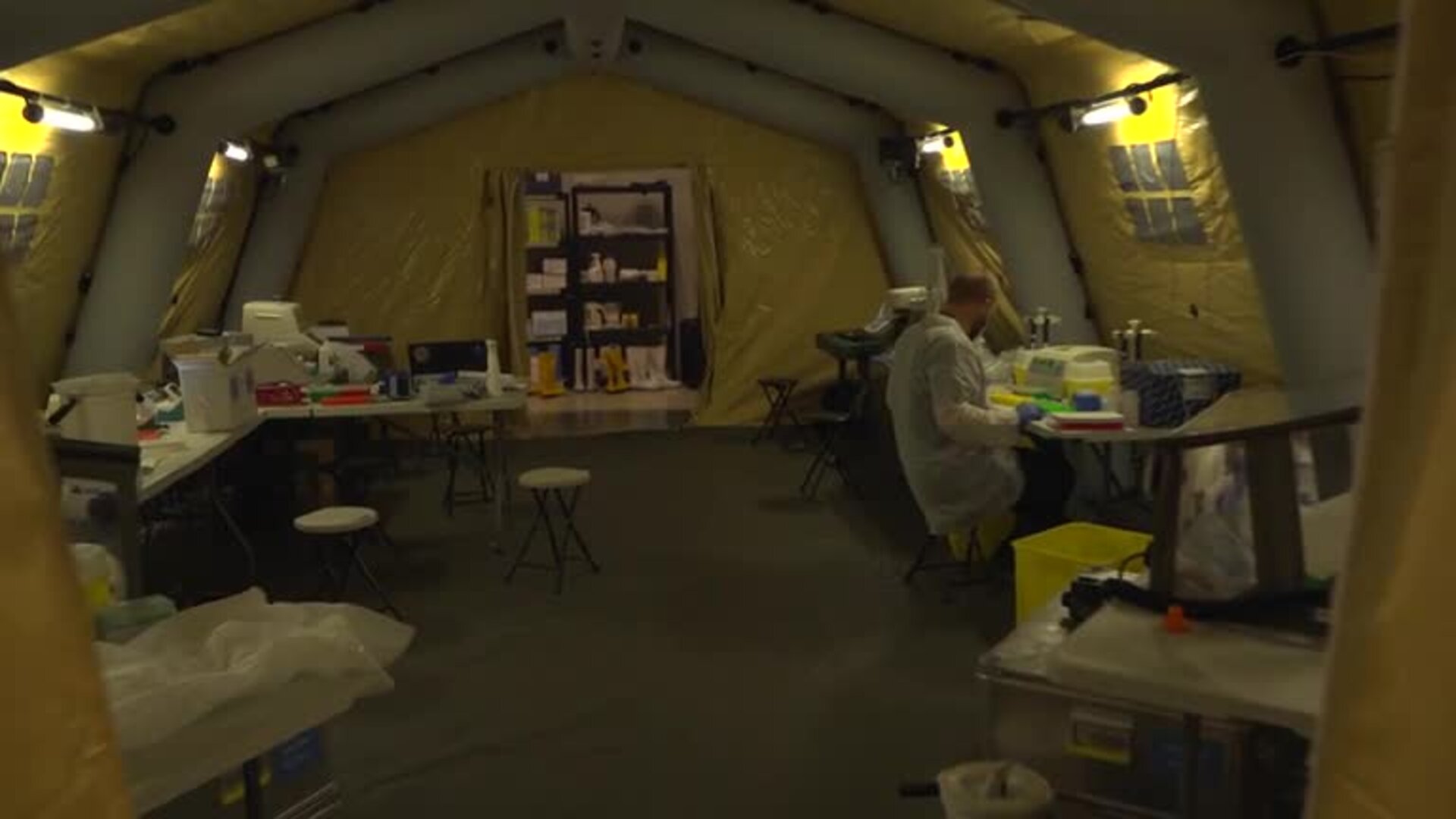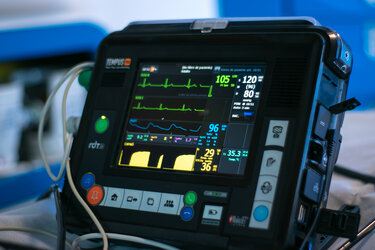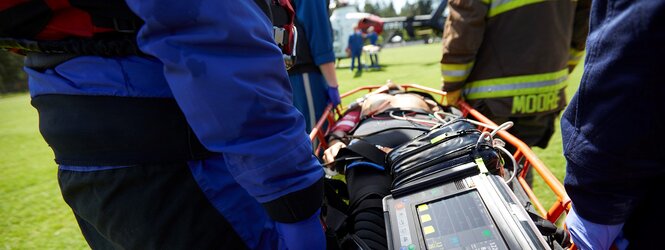Space-equipped lab tests key workers for COVID-19
Space-enabled tests are underway to empower healthcare workers, civil protection volunteers and members of the emergency services to help other people.
As the immediate crisis caused by the coronavirus pandemic fades in Europe, extensive testing systems are needed to enable the vital economic recovery.
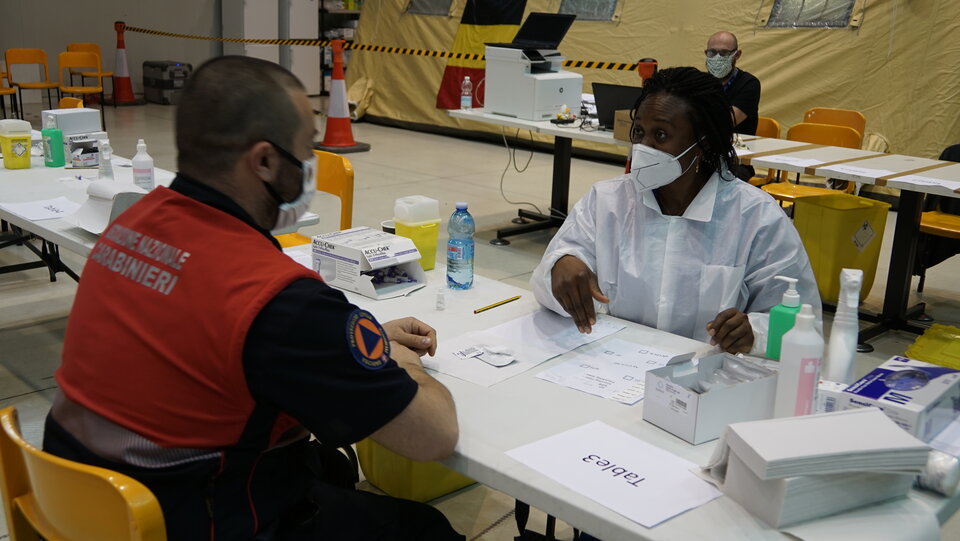
An ESA-backed mobile field laboratory set up at Piedmont is enabling the Italian authorities to test thousands of key workers for COVID-19. Some of the tests carried out there take just a few minutes, instead of a few hours.
Staff use the lab to perform and analyse nasopharyngeal swabs to identify whether or not a person has the coronavirus, as well as to conduct antibody tests to demonstrate whether a person who has been infected has an immune response to the virus.

Key workers who have a negative antibody test or a positive antibody test followed by a negative swab can then return to work quickly, supporting the economic recovery.
Jean-Luc Gala, director of the Centre for Applied Molecular Technologies at the Université catholique de Louvain (UCLouvain) in Belgium, developed the lab and is operating it in Piedmont. He says: “In this lab, we can do also molecular testing, to see if the virus is present in patients and to analyse the immunity as well. This is the type of quick answer that we can provide very rapidly.”
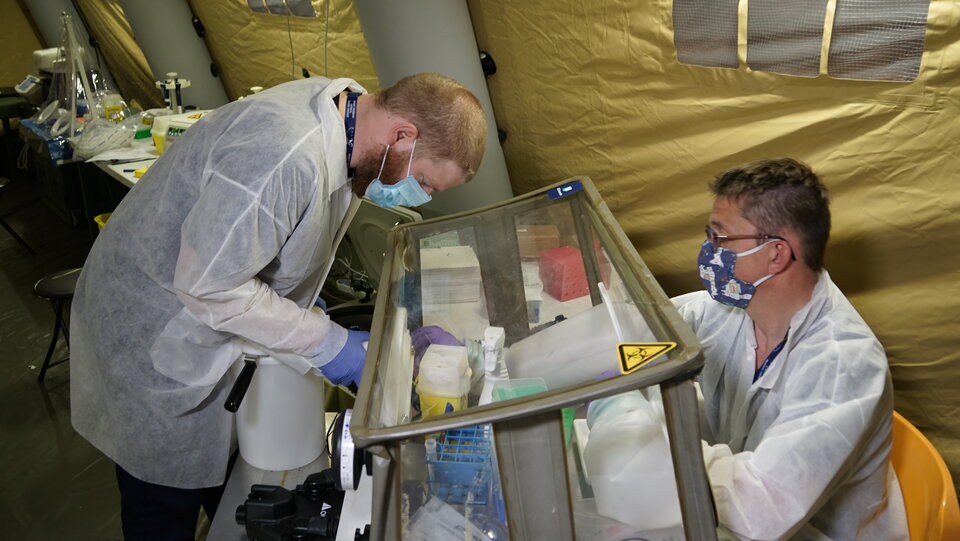
Called B-LiFE, short for “a biological light fieldable laboratory for emergencies”, the system comprises: tents for the laboratory and command-and-control units; specialised equipment to rapidly analyse samples; an information and management system to collect and store all the results; and dedicated satellite communication systems for reliable and secure communication.
“The B-LiFE system has unique capabilities thanks to its integration of space assets,” says Roland Gueubel, B-LiFE director at UCLouvain.
“The satellite telecommunications are crucial for the autonomy of the laboratory, for logistics support and for the real-time data transfer to health authorities. Earth observation imagery is a key resource for mapping the crisis area, for situational awareness tools, for the geolocation of sampling and for real-time epidemiological mapping.”
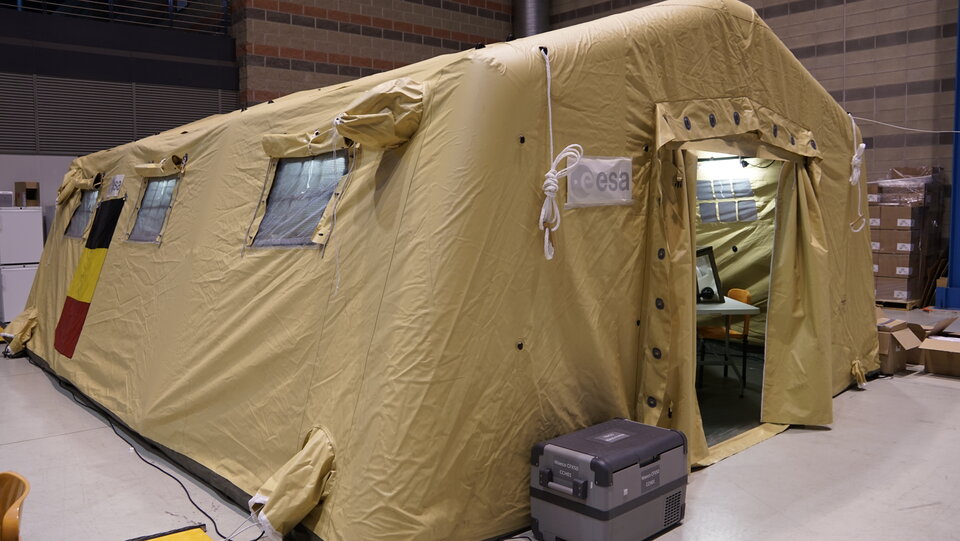
Arnaud Runge, medical engineer overseeing the mission at ESA, says: “B-LiFE has demonstrated that it can bring solutions to crisis situations anywhere in the world, in a very fast and reliable way. Any country could make use of B-LiFE – if you trigger requests, Europe will be able to offer an answer.”
B-LiFE is certified under the EU’s civil protection mechanism, which aims to enable national authorities to exchange information to identify best practice and work interchangeably in the field when disaster strikes.
It was developed as part of ESA’s Space Solutions programme, which provides funding and business support to hasten the development of new products and services that use space assets.



